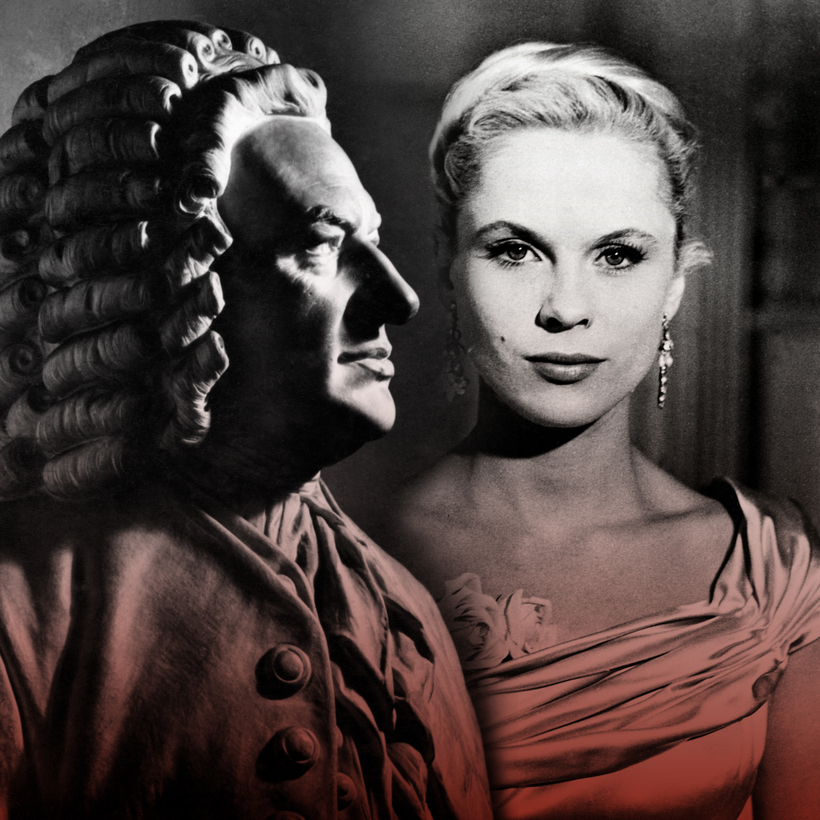The turn of the year is an ambiguous occasion. Underlying all the celebrations and resolutions is the stark acknowledgment that we now have 365 fewer days to live on this planet than we did the last time we were here. The Latin maxim Carpe diem still motivates us, but in continuing to do our best to “seize the day,” it also seems increasingly important to use those days wisely and tenderly—and to be grateful.
This New Year’s Eve, you might want to check out an extraordinary musical gift that is free to anybody in the world with a computer, a speaker, and access to Wi-Fi. The annual WKCR Bach Festival, which started on December 24 and continues to the last minute of 2022, is presented by Columbia University students and alumni. More than 100 hours of the works of Johann Sebastian Bach play continuously and without commercial interruption over eight days.
For all the improbable German pronunciations wrought by young people just beginning to wrestle with other languages, the programming is invariably thoughtful and creative. Bach is represented not only as he might have heard his own music played, but also by gigantic orchestras and choruses, by jazz trios and scat singers, and on electronic instruments. The composer himself was one of the great self-transcribers of all time, whether arranging a violin concerto for keyboard or changing the key of a mournful chorus, speeding it up and making it somehow light.
In 1977, when the festival began, the radio signal from WKCR was so spotty that it was often impossible to listen reliably from a few blocks away (although it always reached downtown and into the boroughs). For most of the present century, it has been possible to hear its broadcast almost anywhere through wkcr.org. I listened in Leipzig a few years ago, a couple of hundred yards from the St. Thomas Church, where Bach served as music director for more than a quarter-century and where his remains are now buried. One afternoon, the city bells began to ring amid one of the programs, and I was overcome by the layered convergence of time, place, past, and present.
For the filmmaker Ingmar Bergman, a master of temporal and emotional fusion, music was rarely mere accompaniment in his works but rather a vital character in itself, adding to and transforming whatever scene might be flashing on the screen. It is Bach that Bergman chose again and again, a voice both omnipotent and humane that animates Wild Strawberries, Through a Glass Darkly, Persona, and Cries and Whispers, among others.
With its multi-dimensional portrayal of an old man looking back on his life, from childhood to his 78th birthday, Wild Strawberries (1957) is a particularly gratifying film to watch at this time of year. I first saw it in 1962 with my dad, projected outside the University of Wisconsin library as part of a summer film festival. You may ask why a boy of seven, barely able to read the white-on-white subtitles, would be so captivated by an old man’s meditation on work, love, and loss. I can’t really explain that myself, but it happened—and that one evening not only made me crazy for film but opened the power of art in one extraordinary, mysterious burst.
This was probably my father’s greatest gift to me: his presentation, at my most susceptible moment, of a paranormal world, both beyond and deeper than anything I’d known. Wild Strawberries is a study of peacemaking. The old man has forgotten nothing, but he has found forgiveness, for himself and others, as he prepares to keep living as long as he can. —Tim Page
WKCR’s Bach Festival is available for streaming on the WKCR Web site through tonight
Tim Page is professor emeritus of musicology at the Thornton School of Music at the University of Southern California. He won the Pulitzer Prize for criticism in 1997

